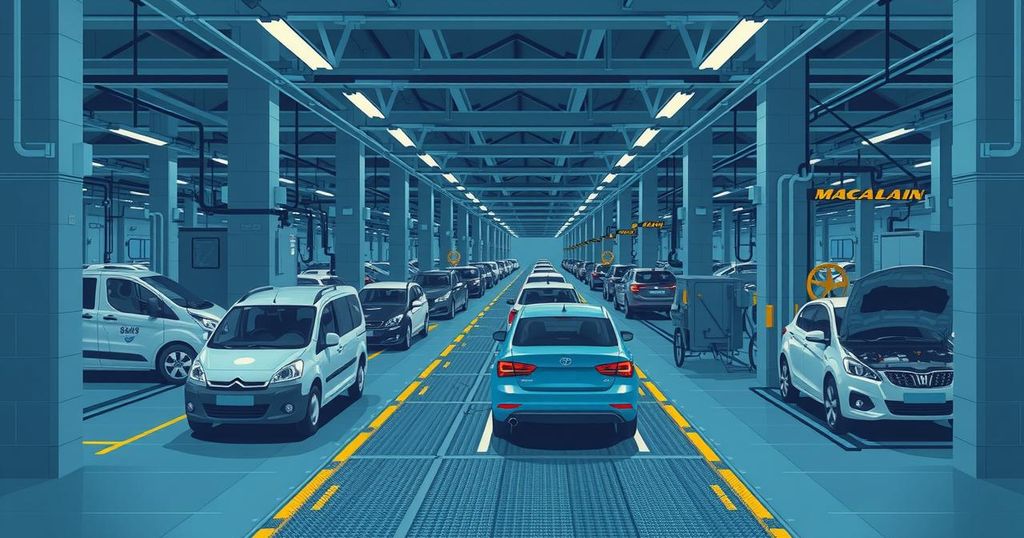South Africa’s Vehicle Exports to U.S. Plummet Over 80% Amid New Tariffs

- South Africa’s vehicle exports to the U.S. fell by over 80% in 2025.
- The decline threatens jobs in South Africa’s automotive sector.
- New tariffs by Trump have severely impacted trade volumes with the U.S.
- April and May 2025 saw the steepest drops in automotive exports.
- The U.S. was previously a key trade partner under AGOA.
- Tariffs now include a 30% levy on all vehicle imports as of August 1.
- East London is experiencing economic fallout due to the decline in exports.
- Automakers are reassessing their operations amid rising costs.
Significant Decline in Vehicle Exports to the U.S.
South Africa’s automotive industry is reeling from a sharp decline in vehicle exports to the United States, dropping more than 80% in 2025. This dramatic plunge can be traced back to a series of hefty import tariffs introduced by President Donald Trump. The April and May figures were particularly alarming, as statistics indicated a staggering 80% to 85% reduction in exports when compared to the previous year, according to the National Association of Automobile Manufacturers of South Africa, or naamsa.
U.S. Tariffs Threaten South African Automotive Jobs
As the second-largest trading partner for South Africa, the U.S. served as a crucial destination for locally produced vehicles. Historically, this relationship benefited from the African Growth and Opportunity Act (AGOA), which allowed for duty-free access to American markets. However, as tariffs rose under the Trump administration, this once advantageous position has been severely compromised, threatening local jobs and economic hubs that rely heavily on the automotive industry for survival.
Challenges and Future Outlook for Automakers
The impact of these tariffs is already being felt in various regions, notably East London, where automotive production is a key economic driver. Industry experts, including naamsa CEO Mikel Mabasa, have cautioned that widespread disruptions within the automotive value chain are imminent. Additionally, manufacturers like Mercedes-Benz, long-time players in the export market, may need to rethink their operations. The potential to absorb increased costs or reduce production could lead them to delay or scale back investments in South Africa, a situation that worsens as global competitors move to fill the void left by South Africa’s diminished export capacity. It is clear that without immediate negotiations and a new trade arrangement, the industry’s future looks quite grim.
In summary, the steep decline in South Africa’s vehicle exports to the U.S., driven by the imposition of new tariffs, poses major threats to jobs and the overall automotive sector. The erosion of benefits under AGOA highlights the precarious nature of the trade relationship. Without swift action to mitigate the impact of these tariffs, South Africa’s automotive industry faces an uncertain path ahead.





